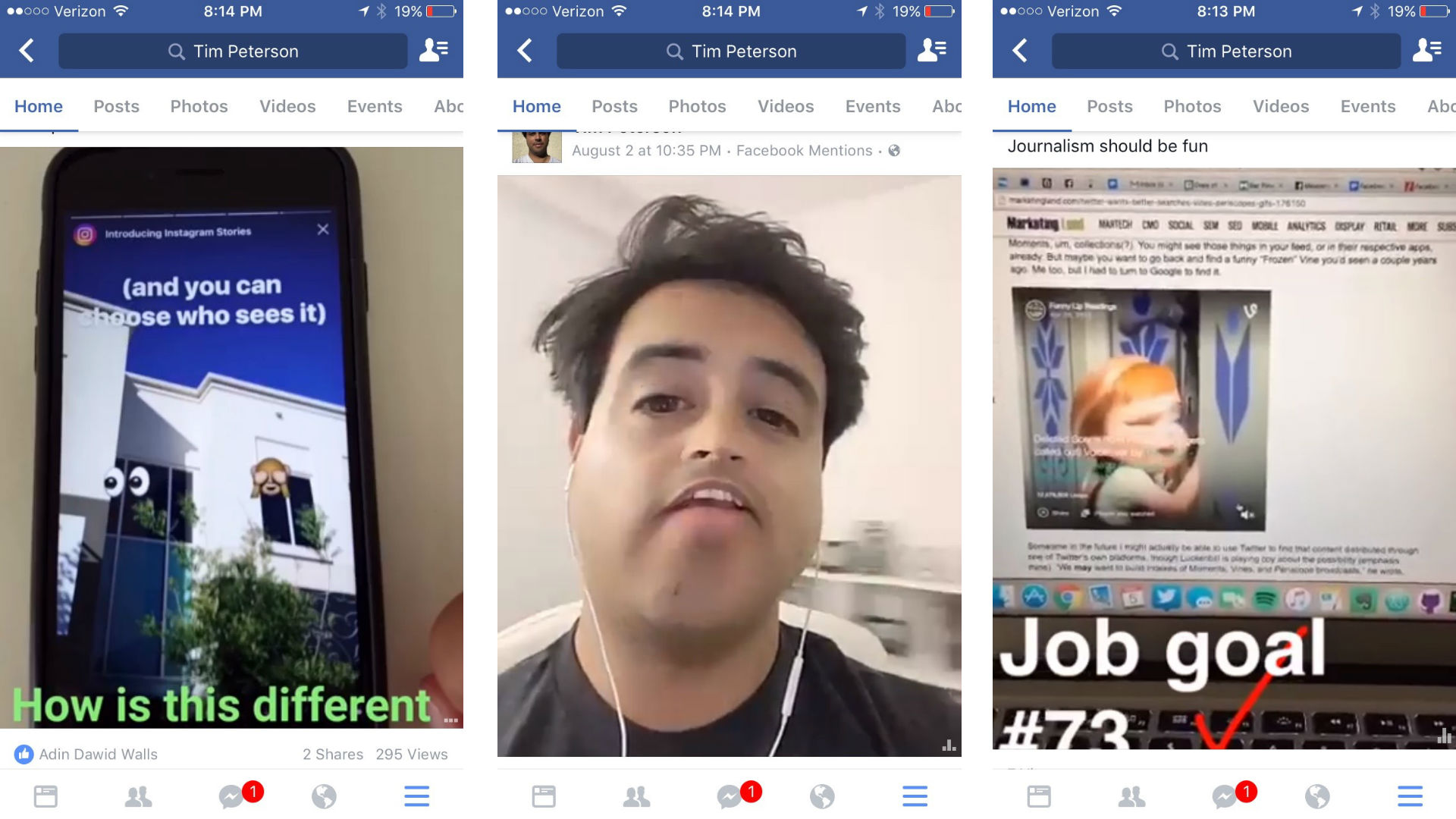Facebook has seen in testing that people watch vertical videos longer and with sound on when those videos are actually presented vertically in their feeds.
A little over a year since announcing Facebook would support vertical videos, the social network is making that support more obvious in people’s mobile news feeds, a Facebook spokesperson confirmed.
“We know that people enjoy more immersive experiences on Facebook, so we’re starting to display a larger portion of each vertical video in News Feed on mobile,” the spokesperson said in an email.
Previously vertical videos were cropped into squares when displayed in people’s news feed, and people had to click to see the vertically oriented version. Not anymore. Now vertically formatted videos, including ads and Live broadcasts, will appear as vertically formatted videos in iOS and Android users’ news feeds.
“If this is rolling out wide, it’s because Facebook has tested it at scale and data shows that people prefer to engage with vertical video,” said Jason Stein, CEO of digital agency Laundry Service and media company Cycle. “If that is the case, it is in line with many other trends on mobile, including what Snapchat has pioneered and Instagram now also has in its feed. Of course, for advertisers and publishers, the more real estate per video the better.”
Also good for advertisers and publishers, in testing the new presentation style Facebook has seen that people are more likely to spend more time watching vertical videos and with the sound on when presented with the vertical versions in their feeds.
The fact that people on Facebook are spending more time watching vertical videos and watching with the sound on could lead to more vertical videos appearing in people’s feeds, and not only because it would cement the format’s popularity among previously hesitant brands and publishers. While Facebook’s news feed algorithm isn’t explicitly favoring vertical videos over horizontal ones — something it does do for live videos over recorded ones — if vertical videos outperform horizontal ones in the engagement metrics Facebook’s algorithm takes into account, then they would be indirectly favored, the way Facebook has come to indirectly favor its native videos over ones shared from other video services like YouTube.
Even though Facebook is getting more obvious about its support of vertical videos, it’s not supporting the format as fully as Snapchat, which had popularized vertical video to the point that both Facebook and YouTube got on board with it last year.

Vertical videos will now appear vertically in Facebook’s mobile news feed, but still somewhat cropped.
The videos will appear in people’s feeds in a 2:3 aspect ratio so they won’t take up the whole screen, the way they do on Snapchat or within Facebook’s Canvas ad format or Instant Articles. To see a full-screen vertical video on Facebook, people have to click on the video in their feed, then click on the expanded video, then arrows will appear in the upper right corner to finally make the video full-screen.
Marketing Land – Internet Marketing News, Strategies & Tips
(17)

